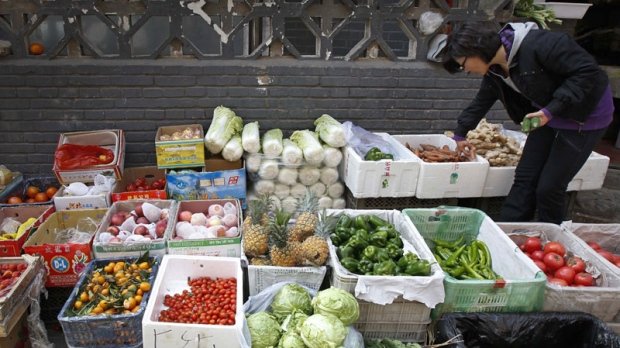Home Tags Posts tagged with "inflation"
inflation
Have you ever felt like your income stretches a little less as time goes on, even if the amount on your paycheck has remained the same? Well, the “good” news is that you’re not imagining this phenomenon. But the more challenging news is that you, along with Americans everywhere, are dealing with the rising costs of living—inflation not necessarily reflected in salaries and hourly wages.
So, what’s a consumer to do when the cost of living is outpacing their earnings? Here’s more on what’s happening and some tips for making every cent of your income count.
While Cost of Living Rises, Wages Stay Stagnant
At first glance, the current economy is chugging along: Unemployment’s at a low following the gradual recovery from our last recession, and wages are up. But what’s increasing even more rapidly than income is the cost of living. One survey found the cost of living in America has climbed 14 percent within the last three years. The median cost for a home has jumped 21 percent, while median rent has gone up by 7.6 percent across the same period.
As debt expert and Freedom Debt Relief co-founder Andrew Housser writes, many U.S. consumers are feeling the pinch as a result: household savings rates are down, few people have the emergency funds they’d need to cover an unexpected expense, and household budgets are “more fragile for the lower part of the income distribution.”
The takeaway? In the face of the rising costs of living, it’s more important than ever to make the most of every penny you earn.
Tips for Making the Most of Your Income
Instead of using paychecks as a means to stay afloat, get strategic about how you use each and every one. Here are a few choice tips from the Las Vegas Review-Journal for doing so:
- Create a budget: Avoid randomly using your paychecks to address expenses by writing them down in order of cost and necessity, then logging how much of your paycheck goes to each one. Prioritize from there. You can use a spreadsheet or a budgeting app to stay current on your budget.
- Adjust how much you’re withholding: You may be withholding too much from each paycheck in the name of getting a refund at the end of the year; that’s money you could use each month to save, pay down debt, etc.
- Pay down debt: Interest on outstanding debts will hold you back over time, so it’s wise to pay more than the minimum. Many people find it helpful to pay down debts in descending order based on either balance or interest rate.
- Set up automatic savings: To avoid the temptation of accidentally overspending, make sure a healthy percentage of each check automatically goes toward saving.
- Build up your emergency fund: Make sure a portion of each paycheck goes into a separate emergency fund to pad you against future catastrophes large and small.
- Plan for the future: Even though retirement may seem a long way off, setting aside a percentage of each paycheck will set you up for the future once your income stops.
- Have some fun, too: Once you’ve prioritized the aforementioned financial goals, you can use some of your paycheck to reward yourself for staying on track. Allowing yourself some wiggle room for discretionary spending is important.
Instead of expecting yourself to avoid discretionary spending altogether, simply build it into your budget as something you can do after you budget for necessities. This will help you wring more value out of each paycheck.
It’s undeniable the costs of living are going up for Americans, which makes it more important than ever to be strategic about how you use your income.
Venezuela’s Central Bank has filed a lawsuit at a court in Delaware against American website DolarToday.
The bank accuses DolarToday of cyberterrorism and says its managers are sowing economic chaos in Venezuela.
It requested both an injunction and damages, accusing the site’s managers of fanning inflation in Venezuela.
DolarToday tracks the black market value of the Venezuelan currency, the bolivar.
The website publishes a rate in Venezuelan bolivars for the US dollar, which is far higher than the official one.
On October 23, DolarToday it quoted the dollar at 820 bolivars, which is 130 times higher than Venezuela’s strongest official rate of 6.3 bolivars and four times the government’s weakest rate of 200.
Venezuela uses a three-tier system to subsidize key imports with advantageous exchange rates.
DolarToday says it calculates its rate based on trades on Venezuela’s border with Colombia.
President Nicolas Maduro has in the past accused the website of being part of an international capitalist conspiracy against his socialist government.
Critics say currency controls and widespread government intervention in Venezuela’s economy have caused shortages of goods and shrinking GDP.
China’s consumer prices rose more than forecast in September 2013, fuelled mainly by a surge in food prices.
Prices rose 3.1% during September, from a year earlier, up from 2.6% in August, the National Bureau of Statistics said.
The bureau said that food prices rose 6.1% from a year ago due to the impact of national holidays, as well as droughts and floods in some regions.
Some analysts said that rising prices had reduced the chance of any major monetary policy moves by Beijing.
“The rise of consumer price index (CPI) inflation leaves little room for policy easing,” said Zhiwei Zhang, an economist with Nomura.
He added that prices were likely to rise further and that there was a risk the rate of inflation could even be above the government’s 3.5% target for some months in 2014.

China’s consumer prices rose more than forecast in September 2013, fuelled mainly by a surge in food prices
China, the world’s second-largest economy, has been trying to recover from a recent slump which has seen its growth rate slow for two quarters in a row.
Its economy expanded by 7.5% in the April-to-June quarter from a year earlier – down from a growth rate of 7.7% in the previous three months.
There have been concerns that its growth rate may slow further in the coming months, not least because of a slowdown in demand for Chinese exports from key markets such as the US and Europe.
While there have been some indications in recent weeks that its growth may be on the mend, data released over the weekend triggered concerns over whether the recovery was sustainable.
China’s exports, a key driver of its growth, fell 0.3% in September from a year earlier, indicating that external demand continues to remain fragile.
Zhou Hao, an economist with ANZ in Shanghai, said the weak export numbers show that “the economy faces some downward pressures”.
Meanwhile, imports rose a more-than-forecast 7.4% from a year ago.
Safeguards built into the bitcoin software are about to be triggered as the number of bitcoins in circulation hits a key milestone.
This means bitcoin “miners” will have to work twice as hard to be rewarded with the same number of coins.
The change comes as competition to create the coins gets more intense with the release of custom mining chips.
Since the creation of the bitcoin network in early 2009, bitcoins have grown to become a very widely used digital currency. An increasing number of online shops and businesses accept bitcoins as payments and currently each bitcoin is worth about $12.
As a digital currency, bitcoins are not issued by a central bank or national mint. Instead they are created by the system’s network when a specific amount of computer work, known as a “block” has been completed. Fifty bitcoins are released when that block is done and the work, which involves solving a hard mathematical problem, is completed.
The protocol that defines this block-to-coin ratio reduces the reward given for finding each block every time 210,000 blocks have been found. According to statistics gathered about the bitcoin network, the 210,000 figure looks set to be passed on 28 November. Then, instead of getting 50 bitcoins per block, miners will get only 25.

Safeguards built into the bitcoin software are about to be triggered as the number of bitcoins in circulation hits a key milestone
“The main reason to do this is to control inflation,” said Vitalik Buterin, a journalist at Bitcoin Magazine. Controlling the rate at which coins were created, he said, meant there would never be a surge or shortfall in the number of bitcoins in circulation, either one of which could rapidly change the value of each coin.
It addition, he said, it was a hedge against technological innovation. In the early days of bitcoins, many people used desktop computers to do the hard sums. Then they started to use banks of graphics cards that could do the maths very quickly to speed up the rate at which blocks of work were completed.
Vitalik Buterin said some miners were now using even more specialized hardware to do the mathematical work and firms were starting to produce custom-made chips that stepped up the pace of work even more.
However, he said, the creators of bitcoins had foreseen these changes and built in controls to keep the numbers of blocks completed relatively constant.
“The protocol always calibrates difficulty to make up for increased mining power,so the speed at which people are finding blocks isn’t going to go up by much no matter what.”




